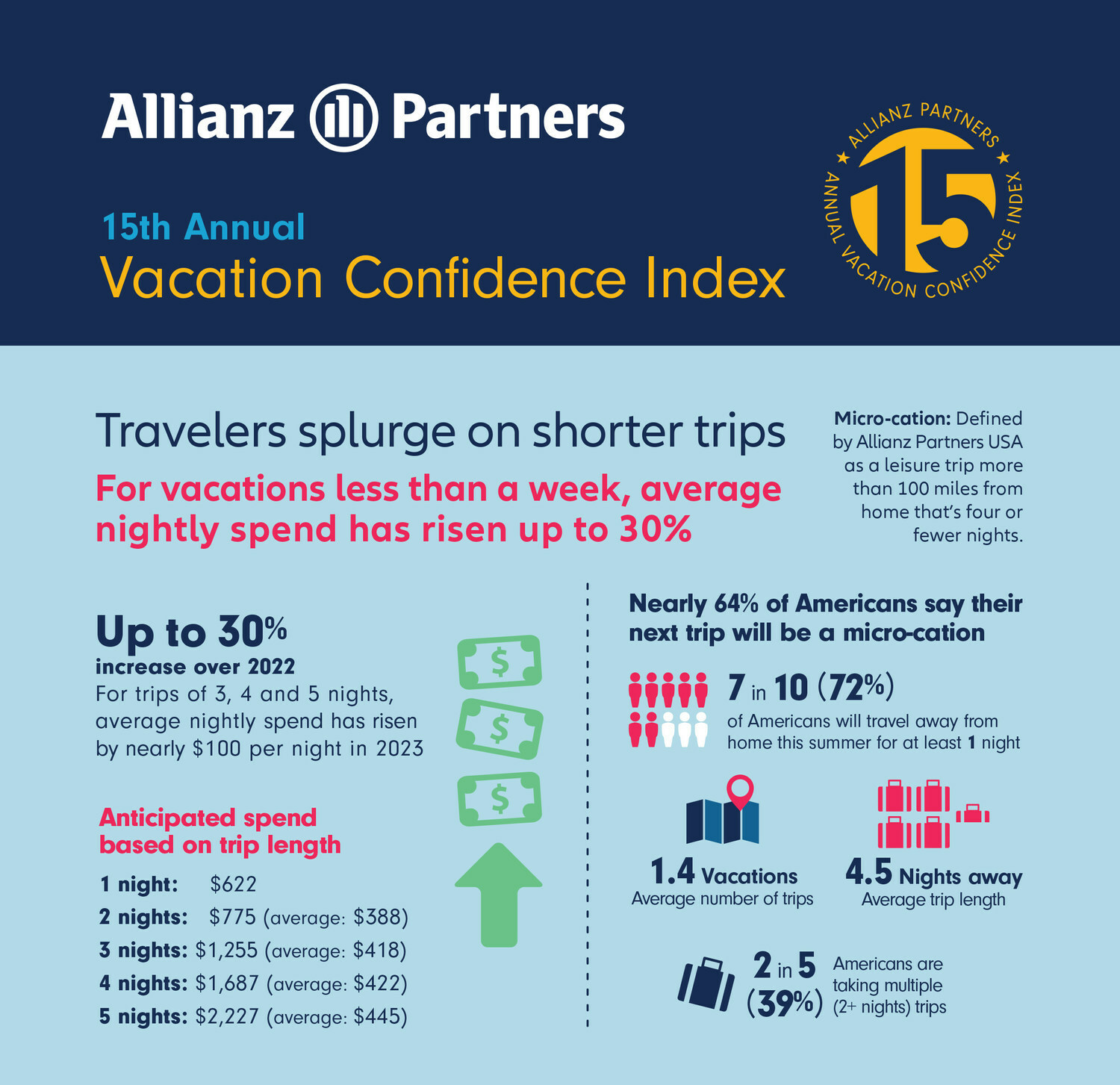
Americans are planning to set their status to "out of office" for longer stretches and open their wallets a little wider this summer, according to this year's 15th Annual Vacation Confidence Index from Allianz Partners USA. While the traditional week-long vacation is still elusive, new research indicates travel is becoming a priority again based on longer trips and increased spend.
As both travel and confidence have rebounded in recent years, the average number of nights spent away has been steadily creeping up and now sits at 4.5 versus 4.3 (2022) and 4.1 (2021). The shift is beginning to erode the "micro-cation" trend coined by the travel insurance and assistance company in 2019 that defined a leisure trip of four nights or fewer and at least 100 miles away from home. This year, nearly two-thirds of respondents (64%) say their next vacation will still be squeezed into a micro-cation and a quarter (23%) are planning more than one, both in line with last year.
Between May and September, seven in ten (71%) Americans will travel away from home for at least one night, averaging 1.4 trips away from home again this summer. Two in five of those surveyed (39%, consistent with 2022) also are planning multiple getaways of two or more nights away from home, resulting in a busy summer travel season. While the majority of all getaways still qualify as a micro-cation, overall trip length begins to shrink as the number of trips passes three.
Length of time away isn't the only travel indicator that's creeping up. With summer vacation spending expected to hit an all-time high of $214.1 billion in 2023, it's no surprise that average cost per night also is on the rise. Those who go away only one night are more likely to splurge, spending $622 on the trip. When adding a second night, travelers plan to spend $775 total, plunging the average nightly rate to just $388. In a reversal from 2022, those committing to three, four or five nights away have displayed solid growth year-over-year with average nightly spend jumping nearly $100 compared to last year (up as much as 30%) at $418, $422 and $445 respectively.
"A 'micro-cation' affords more opportunity to make a quick getaway and justify a splurge, and many Americans are planning multiple trips to soak in all summer has to offer from the mountains to the beaches and everywhere in between," said Daniel Durazo, director of external communications at Allianz Partners USA. "For frequent travelers, an annual travel insurance policy delivers both convenience and value by protecting every trip from budget to binge for a full year."
The Vacation Confidence Index has been conducted each summer since 2009 by national polling firm Ipsos Public Affairs on behalf of Allianz Partners USA.
*Methodology: These are the findings of an Ipsos poll conducted on behalf of Allianz Partners. For this survey, a sample of 2,010 Americans aged 18+ was interviewed from May 2 to 4, 2023 via the Ipsos Online Omnibus. The precision of Ipsos online polls is measured using a credibility interval. In this case, the results are accurate to within +/- 2.5 percentage points, 19 times out of 20, of what the results would have been had all American adults been polled. Quota sampling and weighting were employed in order to balance demographics and ensure that the sample's composition reflects that of the actual U.S. population, according to data from the U.S. Census Bureau. Credibility intervals are wider among subsets of the population.
